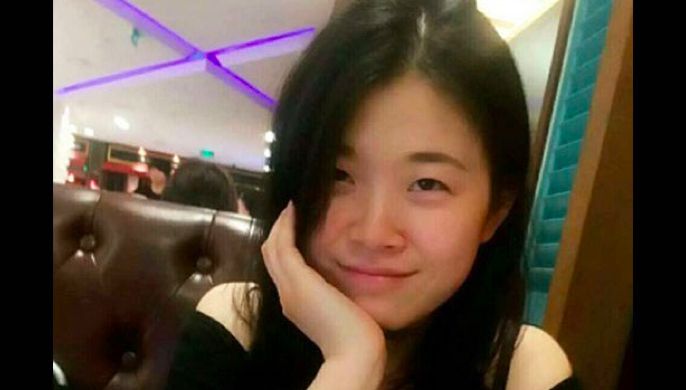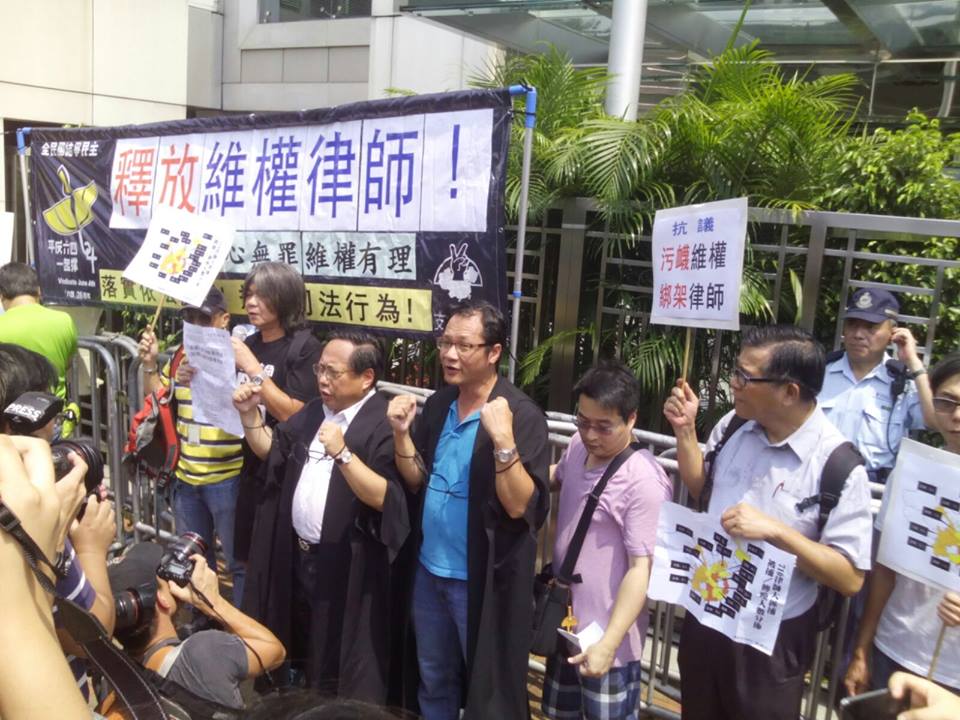A human rights legal assistant targeted in China’s mass crackdown last year has published a letter of repentance on Weibo following her release from detention, saying that she was used as a pawn by “foreign organisations.”
Zhao Wei was a legal assistant to human rights lawyer Li Heping and was the youngest person detained in China’s crackdown on lawyers last July. She was released on bail almost a year after she was taken away by authorities on July 10, 2015.

In the Weibo post, first published on Thursday evening, Zhao said that she wanted to share with her friends and family her mental journey because she was only 24-years-old, but fate played tricks on her and she went down the wrong path.
“I care about fairness and justice in society and I follow community events with interest; and this kind of interest – it was like fate, it turned my attention to the group of ‘human rights lawyers’ which appeared to be about justice on the surface. I began showing support for their activities online and also actively took part in those so-called community events, petitions and discussions organised by them,” Zhao said in the letter.
Zhao said that, in October 2014, she moved to Beijing and – after referrals – became a legal assistant to Li Heping at the Globe-Law Law Firm. “At that moment, I thought, my dreams are finally becoming a reality and my new life begins here,” Zhao wrote.
‘Foreign organisation’
Zhao said that she did not have a background in law and cherished her job greatly, believing that she was very lucky to be able to deal with cases which attracted the attention of the whole nation and the world.
She said she never thought about why she was given such a high-paying job and it was only after a few months that she understood that the capital from these projects, including her wages, were all sponsored by a “foreign organisation.”

Zhao said that the organisation pretended to be doing “anti-torture” research, but in fact it was using funds to collect and review information on internal cases of a sensitive nature, which were then used to criticise China’s judicial and societal systems.
“Those so-called discussions were just a platform for those ‘human rights lawyers’ and ‘sensitive’ individuals to meet and exchange ideas, so that they would become helpers and pawns of people infiltrating China [with their ideologies].”
This was the organisation that Li worked for, and he had concealed this from Zhao, she said. Later, Li asked her to post information on Weibo so as to “sway public opinion.”
“Now, I laugh at how naive I was, how loyal I was to Li Heping, I did all the work that he gave me without thinking twice, I even expressed support for these groups of ‘human rights lawyers’ and ‘democratic [advocates]’, believing that this meant I loved the country and cared about the community. This feeling of being used is extremely painful. I really didn’t think that my actions went against my dreams and caused harm to my country which I love, and unwittingly became the pawn of others who had other intentions.”
Zhao apologised for her actions and said she was very remorseful. “Today I say goodbye to the old me… and will show everyone that [I will become] a brand new [me].”
Zhao ‘not completely free’
The letter was published just two days before the anniversary of the “709 crackdown,” which refers to China’s detention and arrest of human rights lawyers for “subversion of state power” on July 9 and July 10 last year. Many lawyers are still currently detained.
Ye Haiyan, a Chinese activist, published a response to Zhao’s letter on Weibo. “One should not make moral judgments about someone who has not completely obtained freedom,” she said.

Ye said she was certain Zhao’s letter had been reviewed by the authorities in the system, and that even though she appeared to be “free,” it is likely that she would be under surveillance for over two years.
Ye also said that the letter made some wonder whether Zhao had changed her mind and added that, even if that was the case, Zhao was a grown person with independent thinking skills and if she chose to obey the Communist Party, that was still her choice. However, she did not believe that this was what happened, as “Birds which have seen the sky will not be willing to go back into the cage.” Ye said she hoped that the others targeted in the “709 crackdown” will be freed soon as well.
